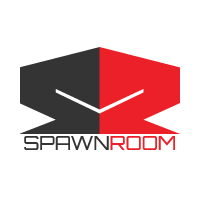One of the best ways to gain some traction in the eSports community (as a non-player) is by conducting interviews. It gets you noticed, it’s something the community wants, and keeps you engaged with ideas and events. When I was more involved in eSports I attended a few live events, covered online tournaments, and conducted a brief interview series called, “Getting To Know…” on YouTube. The goal of this article is to provide some insights I learned along the way and a template for jumping into eSports interviews.
Tips & Advice
Introduce yourself and ask politely if you can interview the player, organizer, or attendee. Be sure to tell them who or what you’re doing the interview for.
Be prepared. People are busy and will quickly notice if you’re just spit-balling or someone that’s on their game. Don’t force them to wait around while you dig out a laptop and connect to a wifi network.
Start your interview with simple introductory questions: Who are you? Why are you here? What do you think of the event so far?
Remember, not all your questions and their answers need to be shared in the final piece. Sometimes you ask questions to break the ice or bridge into another topic and they’re not worth wasting your readers time. Publish the most engaging content.
Get your information straight. Don’t get their name wrong. Don’t forget to link relevant social accounts or a website. Don’t get the event name wrong or forget to include a major sponsor if they’re a part of it. For instance, I attended the Midwest Meltdown which was organized by the Teh Pwn Gaming Club, but the Collegiate Star League was a primary player. Ask how the event should be officially referenced.
When you’re done, make sure to thank them and reference the website where the interview will be posted and how soon.
Interview Questions
Simple Starter Questions:
- Who are you? Why are you here?
- How long did it take you to travel here?
- How often do you attend live events or compete online?
- What other games or game types do you play?
Community Questions:
- How involved in eSports are you?
- Where do you think eSports or your particular game is headed?
- Is there anything that bothers you with eSports or your particular game?
- Is there anything you’d like people to check out or get involved in?
Player Questions:
- Are you currently on a team?
- If yes, how long have you been with them?
- If no, are you aiming to get recruited by any particular team?
- What’s your training regiment like?
- Have you ever considered switching games?
- How do you stay motivated to keep playing? Do you ever get bored of your game?
- What are your long-term aspirations in eSports?
Organizer Questions:
- How long have you been planning this event?
- How does the turnout compare to expectations? Why?
- Have you organized or contributed to many of these events?
- How many people are involved in something like this?
- Who are the event sponsors? (bonus points for giving them a chance to support their supporters)
- Where are you hoping to take these events? What’s the future like?
Caster/Commentator Questions:
- How did you get into casting? How long have you been casting?
- What games do you cast? What’s your favorite?
- How often do you cast per week?
- What’s the hardest part about casting for you?
- Do you have any secret advice for hopeful casters? (beyond just “cast more!”)
- How do you handle downtime? Do you prepare content and jokes ahead of time?
Closing Questions:
- Do you have any advice for players/fans/casters/competitors out there?
- Are you planning on attending or competing at any upcoming events?
- Where can people find out more about you?
Overall coming up with basic interview questions is easy, but asking compelling questions that people will actually read is not. It is helpful during interviews to imagine who the current question serves and what it could accomplish for them. If you’re interviewing a player, your audience is probably hopeful competitors looking for insight about how to practice more and achieve better results. If it’s an organizer they might be looking for industry knowledge to help them drive more spectators or close a marketing deal with a sponsor. For casters it’s probably ways to advance their careers and get noticed in the community. And for fans and community members it’s about revealing the inner workings of eSports. Just imagine that the person you’re interviewing has secret knowledge and you’re trying to expose it to the community. You’re cataloging a movement so find the highlights that people will want to read in the future.
